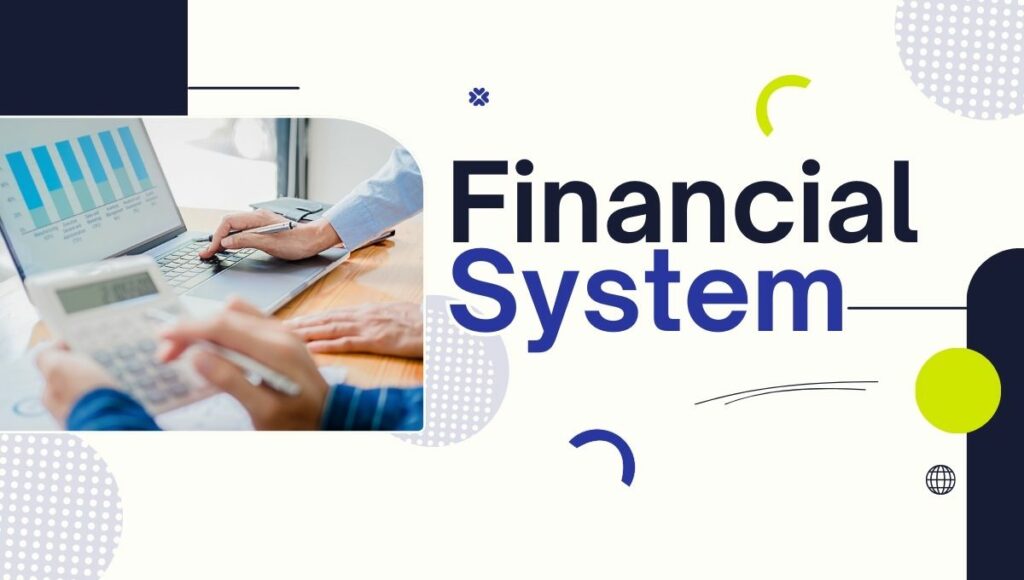Imagine a world where money doesn’t move smoothly. Businesses would struggle, investments would dry up, and economies would fail to grow. What keeps everything in balance is the financial system. It’s the foundation that supports trade, investment, and economic stability. But what makes this system strong? Let’s break it down and explore why understanding this is vital for aspiring investment bankers in India.
What is a Financial System?
A financial system is a network of institutions, markets, and tools that help money flow through an economy. It connects savers, borrowers, investors, and organisations, ensuring funds are used efficiently. In fact, this system is growing fast in India. For example, according to RBI, banks held 64% of financial assets in the nation in 2023. The extent to which an economy’s financial architecture is designed contributes significantly to shaping it.
Key Components of a Financial System
Here’s a closer look at what makes up a financial system:
✅ Financial Institutions: These include banks, NBFCs, and mutual funds. They act as middlemen, connecting savers with borrowers and ensuring everyone has access to financial services.
✅ Financial Markets: Capital markets (stocks and bonds) and money markets (short-term loans). These enable businesses to gain funding and investors to build wealth. Clearer rules and transparency are thus key to making the markets effective.
✅ Financial Instruments: Because they are fuel for effective investments and minimize risk, financial instruments include stocks, bonds, and derivatives. They also optimize the use of savings available in the economy.
✅ Financial Infrastructure: Clearinghouses, payment systems, and credit agencies allow smooth and secure transaction executions. They reduce risk factors and make the system sound.
✅ Regulatory Framework: Organizations, such as RBI and SEBI, enforce rules which protect investors, maintain impartiality, and instill financial discipline.
Characteristics of Financial System
A robust financial system does more than just keep money moving. It ensures trust, stability, and growth. Here’s what makes it strong:
✅ Efficiency: Funds should flow quickly and at low costs.India’s adoption of digital banking services, in particular UPI, stands as an excellent example. In 2023, transaction costs for digital payments reduced by 20%, where UPI processed over 10 billion transactions each month, raising overall efficacy.
✅ Transparency: Open and honest practices build trust. For example, SEBI requires listed companies to disclose financial data, helping investors make better decisions.
✅ Resilience: The system must recover from crises like we saw in the COVID-19 pandemic. During this period, Indian banks implemented measures like loan moratoriums to stabilize the economy.
✅ Inclusivity: Every person should ideally have the access to financial services. Schemes like Jan Dhan Yojana have brought millions into the financial fold by opening over 50 crore bank accounts by 2023.
✅ Innovation: The system stays relevant with new technologies. India’s fintech industry is one of the leaders, where platforms like Paytm and Zerodha make payments and investments easier.
✅ Stability: A strong system avoids extreme fluctuations that harm economies. The RBI, for instance, monitors risks and manages inflation to maintain stability.
Resilient Financial System Infrastructure
A resilient infrastructure is built on certain financial system design principles. These ensure it can adapt and thrive in a changing world:
✅ Stability: Mechanisms like stress testing and liquidity buffers help manage risks and protect the system during tough times.
✅ Adaptability: The financial system must evolve with market trends. India’s embrace of digital platforms like UPI showcases adaptability in action.
✅ Accountability: Clear rules and responsibilities prevent unethical practices. SEBI’s focus on corporate governance ensures fairness and builds trust.
✅ Sustainability: Green finance and investment that is ethical are becoming increasingly important. India’s authorization of INR 80 billion in green bonds in 2023 expresses this shift in the direction of long-term, environmentally friendly growth.
Why This Matters for Investment Banking
For investment bankers, a strong financial system is essential. Here’s why:
✅ It provides stable markets for deals like IPOs and mergers.
✅ It opens up opportunities for new financial tools and innovations.
✅ It creates career growth by building a deeper understanding of how the system works.
In 2024, India’s financial system demonstrated its strength. The country’s stock market saw a ₹1.19 lakh crore IPO boom, and the financial inclusion index rose to 64.2, reflecting increased accessibility and trust.
FAQs
- What are the main parts of a financial system?
Financial institutions, markets, tools, infrastructure, and regulations. - What makes a financial system strong?
Traits that make a financial system strong are – efficiency, transparency, resilience, inclusivity, innovation, and stability.
- How does it affect investment banking?
It affects investment banking by ensuring opportunities for growth, stable markets, and room for innovation.
- What principles make the system work?
The key principles that make the financial system work are – stability, adaptability, accountability, and sustainability.
- Why learn about financial systems?
Learning about the financial systems is essential for anyone aspiring to pursue a career in finance or investment banking.
Final Thoughts
A strong financial system is the lifeblood of any economy, facilitating growth, innovation, and stability. For students and professionals in India eyeing a career in investment banking, mastering the financial system—its key components, infrastructure, and design principles—is non-negotiable. To get a head start, consider attending an investment banking course that is well-tailored to the unique financial landscape of India.
As the financial world evolves with trends like green finance and digital transformation, staying informed and skilled is your pathway to success. Let the principles of a robust financial system guide you as you chart your career in this exciting field.

